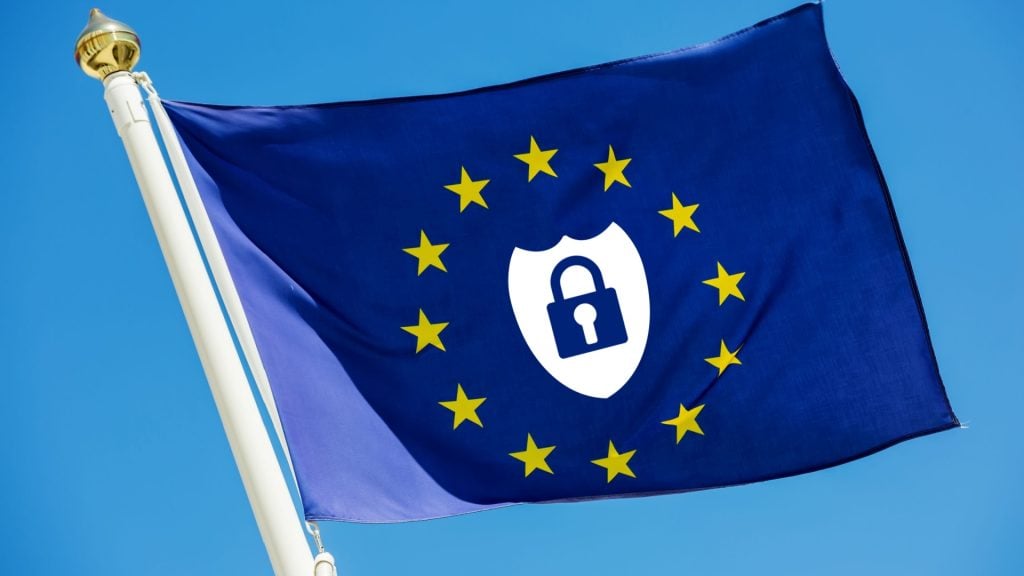As hackers become more skilled, the fight against cybercrime is becoming increasingly challenging. This problem transcends industry boundaries and affects small and medium-sized enterprises (SMEs), large corporations and the public sector alike.
In February this year, over 2.1 billion known data records were breached in 113 publicly disclosed incidents in the European Union – a figure that only takes into account attacks in January. This figure is worrying when compared to the average monthly number of records breached in the fourth quarter of 2023 – over 78 million. Due to the increasing number of cyberattacks, improving cyber resilience has become the focus of pressing data security and cybersecurity issues. This starts with better training and awareness of cyber threats, giving the European Union the skills and readiness to tackle real cyber security challenges and expand its cyber security talent pool.
Employing strong cybersecurity talent is critical to ensuring that organizations are equipped to deal with the increasing cybersecurity threats that are becoming more prevalent. According to a study by the Clark School at the University of Maryland, there are 2,200 cyberattacks worldwide every day, which corresponds to an average of one attack every 39 seconds. And as their presence increases, so do the costs of combating cybercrime. The cost of cybercrime reached over 9 trillion dollars in 2023 and is expected to rise to over 23.8 trillion dollars by 2027.
Ireland as a pioneer in building cybersecurity talent
Along with the ongoing – and exponential – digitalization affecting all types of businesses and institutions, this rise has come about because hackers have exploited collaboration tools used in remote working environments and attacked educational institutions that have switched to permanent online learning after the pandemic. In addition, cyberattacks are expected to increase further due to advances in AI technology, such as ChatGPT. However, the European Union is in an advantageous position to tackle this growing problem as it has an abundant supply of cybersecurity talent available.
The availability of talent is proving crucial in protecting against cyberattacks Over the next 4 years, Statista predicts that the global cost of cybercrime will increase by 23% annually, reaching 23.84 trillion dollars annually by 2027. Therefore, it is obviously only beneficial for EU countries to invest in improving their cyber security defenses. Ireland is a prime location for the development of cyber security defense and is home to 6 of the top 10 cyber security software companies. It also has a vibrant startup program with over 60 Irish cybersecurity startups. To facilitate the attraction of top cybersecurity talent across the sector, the country has simplified its immigration system, making it easier for companies to hire workers from abroad.
Initiatives by Germany and France
In addition, the country experienced a large increase in the number of work permits issued to non-EEA citizens in 2022. It has not only attracted foreign talent, but also retained its local skilled workforce, with a net immigration surplus of more than 100,000 graduates. Ireland also has the highest proportion of STEM graduates per capita in the EU among 20 to 29-year-olds. It is therefore not surprising that the availability of skilled labor is the main reason for choosing Ireland as a location for foreign investment. In continuation of these efforts, the Irish government also launched the TechLifeIreland marketing program in January 2022, which is aimed at technology graduates and young professionals.
Strengthening the ecosystem through cybersecurity initiatives Germany has shown a strong commitment to strengthening its cybersecurity landscape. The Federal Office for Information Security (BSI) acts as the central authority for cyber security issues. Through its proactive measures, policies and coordination during cyber crises, Germany has positioned itself as a leader in cybersecurity preparedness. The National Cyber Security Index (NCSI) recognizes Germany as one of the world’s leading countries for its preparedness against cyber threats. Furthermore, Germany’s prominent ranking in the Global Cybersecurity Index (GCI) reflects its strong commitment to protecting digital infrastructure.
German companies have stepped up their efforts to improve cybersecurity resilience, reflecting a growing awareness of the importance of protecting digital assets. However, the shortage of cyber security specialists poses a significant challenge. To address this issue, the German government has launched comprehensive initiatives, including significant investment in cybersecurity education and training programs. These initiatives aim to develop a skilled workforce capable of effectively countering cyber threats.
In addition, Germany is establishing regional cyberincident response centers across the country to ensure rapid and coordinated responses to cyber incidents and thus further strengthen its cybersecurity position. Through these strategic efforts, Germany is increasing its resilience against evolving cyber threats and positioning itself as a global leader in cyber security.
France is also committed to developing its cybersecurity ecosystem. Its specialized agency ANSSI, which provides advice, implements preventive measures and coordinates the response to cyber crises, has helped France achieve a place among the fifteen countries best equipped against cyberattacks worldwide in the NCSI and rank third in the Global Cybersecurity Index (GCI) for its commitment to cybersecurity. French companies have also strengthened their cyber security measures. According to data from Statista, turnover in the cyber security sector is expected to reach 5.09 billion dollars.
However, similar to Germany, finding the talent needed to create strong cyber defenses is proving challenging due to the lack of experts in this field. To meet these challenges, the French government has taken proactive steps and presented a comprehensive national cyber security strategy. This initiative is supported by a substantial budget of 1 billion euros earmarked for various cyber security measures.
A key component is the establishment of a specialized training facility to foster a new generation of cyber security experts. In addition, similar to Germany, the plan includes the creation of regional cyberincident response centers that are strategically positioned throughout the country. These centers play a crucial role in providing valuable support, advice and expertise in the event of a cyberattack, further strengthening France’s resilience against cyber threats.
Among Ireland’s initiatives to promote the continuous development of its cyber security talent pool, Skillnet Ireland is committed to enhancing the competitiveness, productivity and innovation of businesses in Ireland through enterprise-led workforce development. The government agency offers industry-specific modules and even bachelor’s and master’s degrees to promote further education. It also provides funding so that companies can offer their teams subsidized training.
In addition, Cyber Ireland, the cluster organization that brings together industry, academia and government to represent the needs of the cybersecurity ecosystem in the country, is supporting the nationwide effort to develop the cybersecurity sector. Both organizations have helped create a job market of 30,000 professionals with cybersecurity-related skills and 7,000 working in the cybersecurity sector.
The EU is well positioned to make significant progress in the development of cybersecurity software and solutions, thanks to the knowledge and experience of its experts in numerous countries, coupled with the enthusiasm and fresh ideas of the new generation of talent ready to be recruited. With the three most attacked industries last year being education/research, government and healthcare, it is becoming increasingly important to protect the data of both the public and employees at all levels. Given the sensitivity of data in these sectors, where the risks are so high, it’s no wonder that governments and businesses are willing to invest in their cybersecurity defenses.
















